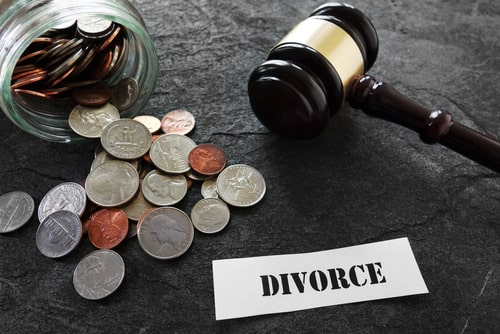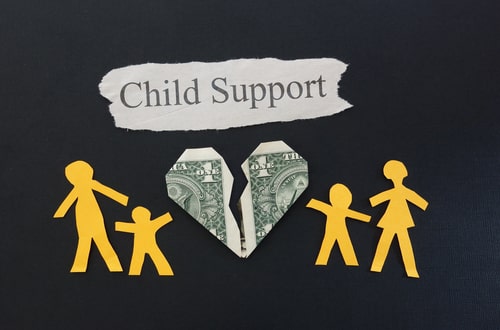Recent Blog Posts
How Will Issues Related to Child Care Affect Child Custody Decisions?
 When divorcing or unmarried parents need to address issues related to child custody, they may encounter disagreements about how they will divide parental responsibilities and when children will live with each parent. There are a variety of factors that may play a role in decisions related to the allocation of parental responsibilities and parenting time, and one important issue will involve the parents' history of providing care for their children. By understanding how child care that has been and is currently being provided by parents will be addressed during a family law case, parents can take steps to protect their parental rights and make decisions that will provide for their children's best interests.
When divorcing or unmarried parents need to address issues related to child custody, they may encounter disagreements about how they will divide parental responsibilities and when children will live with each parent. There are a variety of factors that may play a role in decisions related to the allocation of parental responsibilities and parenting time, and one important issue will involve the parents' history of providing care for their children. By understanding how child care that has been and is currently being provided by parents will be addressed during a family law case, parents can take steps to protect their parental rights and make decisions that will provide for their children's best interests.
Understanding the Role of Caretaking Functions in a Child Custody Case
In many cases, family courts will seek to preserve the status quo as much as possible and avoid disrupting children's lives. Parents should be able to maintain positive relationships with their children and continue serving in the roles that they held in the past as they provided care for their children and ensured that children's needs were met.
5 Things Parents Can Do to Make Divorce Easier on Children
 The end of a marriage can be an incredibly stressful time for both parents and children. Despite parents' best efforts, children may feel caught in the middle of a divorce. They may worry that the divorce is their fault, or they may feel like they will have to choose sides between their parents. They may also be concerned about how their lives will change, whether they will be required to move to a new home or change schools, and when they will be able to see and spend time with each parent. Addressing these issues can be difficult for parents, especially when they are focused on resolving legal concerns and making adjustments to their own lives.
The end of a marriage can be an incredibly stressful time for both parents and children. Despite parents' best efforts, children may feel caught in the middle of a divorce. They may worry that the divorce is their fault, or they may feel like they will have to choose sides between their parents. They may also be concerned about how their lives will change, whether they will be required to move to a new home or change schools, and when they will be able to see and spend time with each parent. Addressing these issues can be difficult for parents, especially when they are focused on resolving legal concerns and making adjustments to their own lives.
If you are a parent who is going through a divorce, you will want to make sure you can help your children get through this process as best as possible while maintaining good relationships with them. Here are a few tips to follow as your family adjusts to the changes in your lives:
Do I Need a Financial Restraining Order During My Divorce?
 The divorce process can be stressful and difficult, and it can affect you both emotionally and financially. As you take steps to separate from your spouse, you may become concerned about how your money or property will be handled. While you may be able to resolve minor financial disagreements with your spouse during the divorce process, there are some situations where you may need to address significant financial concerns such as the concealment or destruction of marital assets. In these cases, it may be necessary to seek a financial restraining order. By understanding the role that these types of restraining orders may play during your divorce, you can make sure your financial interests will be protected.
The divorce process can be stressful and difficult, and it can affect you both emotionally and financially. As you take steps to separate from your spouse, you may become concerned about how your money or property will be handled. While you may be able to resolve minor financial disagreements with your spouse during the divorce process, there are some situations where you may need to address significant financial concerns such as the concealment or destruction of marital assets. In these cases, it may be necessary to seek a financial restraining order. By understanding the role that these types of restraining orders may play during your divorce, you can make sure your financial interests will be protected.
What Is a Financial Restraining Order?
During the divorce process, a court order may be issued that will prevent either party from making significant changes to their assets, which may include bank accounts, retirement benefits, investments, or valuable physical property. After the divorce process begins, a temporary restraining order or preliminary injunction may be put in place that will prohibit both spouses from selling, transferring, or concealing money or property or taking any other steps that could affect the marital estate. A spouse who is a business owner will be allowed to engage in transactions that are part of the ordinary course of business, and spouses can also use marital assets to address daily necessities, such as paying bills and buying groceries. If any extraordinary transactions or expenditures need to be made during the divorce process, a spouse will be required to receive approval from the court.
Do LGBTQ+ Couples Need a Prenuptial Agreement?
 Over the past decade, the number of LGBTQ+ couples who have chosen to get married has increased significantly. However, just like any other couple, an LGBTQ+ couple may face problems in their marriage that could lead to a separation or divorce. While the same laws apply to same-sex couples or other LGBTQ+ partners as in "traditional," opposite-sex marriages, there are a few unique issues that can arise in these situations. Because of this, it may be beneficial for LGBTQ+ couples to consider a prenuptial agreement. By discussing these issues with an attorney who is experienced in LGBTQ+ family law matters, couples can understand their options and the steps they can take to protect themselves.
Over the past decade, the number of LGBTQ+ couples who have chosen to get married has increased significantly. However, just like any other couple, an LGBTQ+ couple may face problems in their marriage that could lead to a separation or divorce. While the same laws apply to same-sex couples or other LGBTQ+ partners as in "traditional," opposite-sex marriages, there are a few unique issues that can arise in these situations. Because of this, it may be beneficial for LGBTQ+ couples to consider a prenuptial agreement. By discussing these issues with an attorney who is experienced in LGBTQ+ family law matters, couples can understand their options and the steps they can take to protect themselves.
Understanding Prenuptial Agreements
A prenuptial agreement is a contract made by a couple before their marriage. This agreement will address how certain matters will be handled if the couple chooses to get a divorce in the future. In general, a prenup can make decisions about the distribution of the couple's assets, and it may also address other financial matters, such as the allocation of debts or the payment of spousal support.
Can a Parent Who Shares Custody Object to the Use of a Babysitter?
 For parents who are divorced or separated, sharing custody of children is not always easy. A parent who has been used to making decisions for their children, providing care at all times, and handling child-related issues that arise may struggle to let go during the times that their children are not with them. While a well-crafted parenting plan can alleviate some of these issues by establishing rules and boundaries and detailing how certain parenting issues will be handled by both parents, some concerns may still arise about whether children are being properly cared for.
For parents who are divorced or separated, sharing custody of children is not always easy. A parent who has been used to making decisions for their children, providing care at all times, and handling child-related issues that arise may struggle to let go during the times that their children are not with them. While a well-crafted parenting plan can alleviate some of these issues by establishing rules and boundaries and detailing how certain parenting issues will be handled by both parents, some concerns may still arise about whether children are being properly cared for.
One issue that parents may encounter may be related to the use of babysitters or other childcare options. If a parent learns that their children are regularly being left in the care of a babysitter or being sent to the home of grandparents or other extended family members, they may feel that the other parent is not living up to their responsibilities to provide the necessary care and supervision for the couple's children. To address this issue and ensure that children can be in the care of a parent whenever possible, parents may seek to implement the right of first refusal in their parenting plan.
UPDATE: Can I Still Prove Paternity if My Child’s Father Is Deceased?
 Originally published: October 15, 2020 -- Updated: May 11, 2023
Originally published: October 15, 2020 -- Updated: May 11, 2023
Update: As mentioned below, it may be necessary to establish paternity for a child even if a parent has died. By following the proper procedures to recognize that a person is the child's biological father, the child will be able to receive an inheritance from their father, which can provide them with substantial financial benefits both immediately and in the future. However, there are a number of other benefits of establishing paternity, including:
-
Social Security benefits - Children who are under the age of 18 and unmarried can receive Social Security benefits through a deceased parent. If the parent was retired or received disability benefits, the child will generally be able to receive 50 percent of the benefits the parent was being paid before their death. If the parent had worked a sufficient amount of time and paid Social Security taxes, the child will generally be able to receive 75 percent of the basic Social Security benefit the parent would have been entitled to.
How Will My Divorce Affect My Business?
 If you are a business owner who is contemplating divorce, you may be wondering how the end of your marriage will affect your ability to continue owning and operating your business and generating income. This is a valid concern, and you may be worried that your divorce may affect both your personal life and your career, leading to disputes over the ownership of your business, as well as potential financial difficulties. By understanding how the divorce laws in Illinois may affect your business, the methods that may be used to establish the value of business assets, and your options for handling ownership of the business going forward, you can make sure you will be prepared to protect your interests during the divorce process.
If you are a business owner who is contemplating divorce, you may be wondering how the end of your marriage will affect your ability to continue owning and operating your business and generating income. This is a valid concern, and you may be worried that your divorce may affect both your personal life and your career, leading to disputes over the ownership of your business, as well as potential financial difficulties. By understanding how the divorce laws in Illinois may affect your business, the methods that may be used to establish the value of business assets, and your options for handling ownership of the business going forward, you can make sure you will be prepared to protect your interests during the divorce process.
Property Division and Business Assets
During your divorce, your marital property, which may include business assets, will be divided between you and your spouse. If the business is considered a marital asset, it will be subject to property division. As you determine how ownership of your business will be addressed during your divorce, you will need to consider the following:
What Happens if a Parent Does Not Pay Child Support?
 Illinois courts consider child support to be the child's right. Every child deserves to have financial support from his or her parents, even if the parents are unmarried or divorced. When an official child support order is issued, the parent is required to pay the full amount, on time. Chronic failure to pay child support can lead to significant consequences.
Illinois courts consider child support to be the child's right. Every child deserves to have financial support from his or her parents, even if the parents are unmarried or divorced. When an official child support order is issued, the parent is required to pay the full amount, on time. Chronic failure to pay child support can lead to significant consequences.
Penalties for Failure to Pay Child Support
It is important to note that this blog discusses official child support orders, not handshake agreements between the parents. If a parent is not complying with a child support order, he or she can face a range of adverse consequences, including:
-
Debt collection through a collection agency
-
Wage garnishment
-
Asset seizure
-
Liens against personal property
What You Should Know About Mandatory Mediation During a Child Custody Dispute
 Parents often disagree about how child custody matters should be handled. For example, one parent may wish to have virtually all of the parental responsibilities and parenting time, while the other parent believes that custody should be split 50/50. Parents may also disagree about where their child should go to school, the types of extracurricular activities or religious practices the child should be involved in, or countless other issues.
Parents often disagree about how child custody matters should be handled. For example, one parent may wish to have virtually all of the parental responsibilities and parenting time, while the other parent believes that custody should be split 50/50. Parents may also disagree about where their child should go to school, the types of extracurricular activities or religious practices the child should be involved in, or countless other issues.
When divorcing parents disagree regarding child-related legal issues, the court may require the parents to attend mediation. If you are a parent who is planning to divorce, make sure you understand Illinois laws regarding mandatory mediation.
When Does the Court Require Mediation?
Typically, mediation is ordered by the court if the parents disagree about the provisions of the parenting plan. Mediation allows the parents to discuss the issue and work toward a solution without the court’s involvement. Illinois courts typically want to avoid child custody cases becoming highly litigious because this is not typically in a child's best interest. So, the first step is going to mediation.
Can Someone Other than a Parent Get Visitation With a Child?
 When we talk about child custody and visitation, we usually do so in the context of parents spending time with their children. However, Illinois law allows certain non-parents to receive court-ordered visitation in certain situations.
When we talk about child custody and visitation, we usually do so in the context of parents spending time with their children. However, Illinois law allows certain non-parents to receive court-ordered visitation in certain situations.
According to Illinois law, grandparents, great-grandparents, stepparents, and siblings may be granted visitation rights.
When is a Family Member Able to Receive Visitation?
When somebody has court-ordered visitation, they are guaranteed the right to spend time with the child. This can be useful for situations involving family conflicts or when a child's parent refuses to let them see a family member.
Illinois courts presume that a child should spend time with both of his or her biological parents. However, the court may grant visitation to a non-parent if doing so is in the child's best interests. A non-parent may request visitation with the child if the non-parent can demonstrate that he or she was unfairly denied visitation with the child and at least one of the following statements is true:





 312-702-1293
312-702-1293






